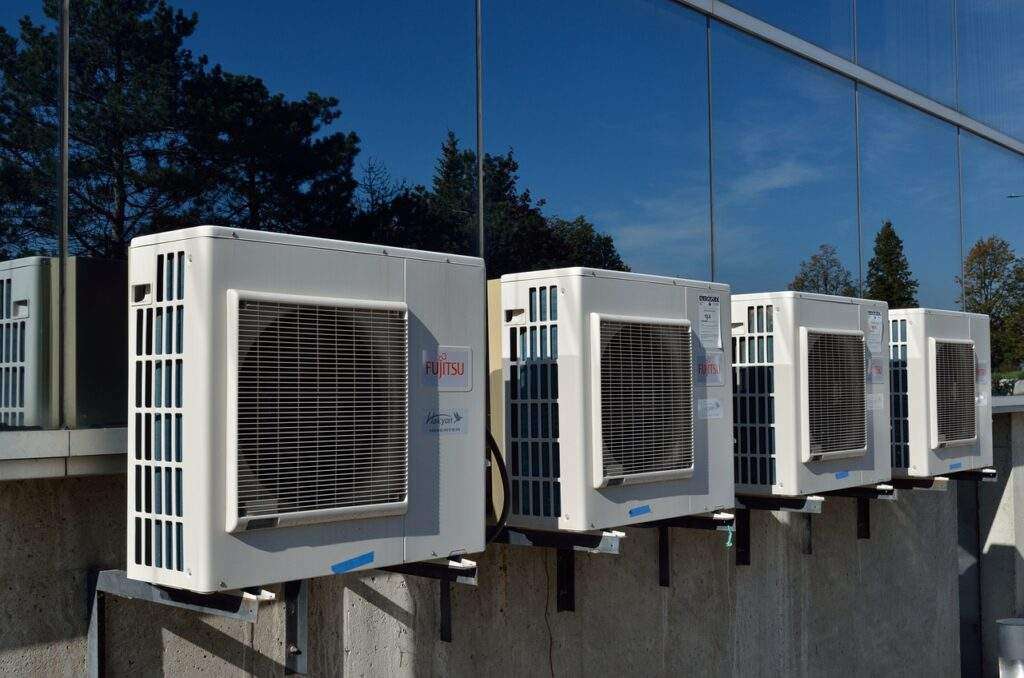
Regular preventative maintenance is crucial for commercial HVAC systems. Keeping these complex systems well-maintained ensures they continue operating efficiently, provides a more comfortable indoor environment, and helps avoid costly repairs or replacements down the road. The following are some of the key benefits of having a regular preventative maintenance plan for commercial HVAC equipment.
Improved Energy Efficiency
One of the biggest advantages of commercial HVAC preventative maintenance is improved energy efficiency. When HVAC components like air filters, coils, fans, and ductwork are kept clean, systems don’t have to work as hard to maintain the desired temperatures. Dirty or clogged parts force HVAC units to use more energy to compensate. The U.S. Department of Energy estimates preventative maintenance can improve HVAC efficiency by up to 15%, which is a significant savings, especially for larger commercial buildings.
Extended Equipment Life
Another benefit is substantially extending the usable life of HVAC equipment. Commercial HVAC units represent major investments, so maximizing their working life saves money. Preventative maintenance like checking refrigerant levels, changing belts, cleaning parts, and inspecting electric controls helps keep all components functioning properly and avoids premature breakdowns or replacements. Properly maintained HVAC units often last years longer than those that don’t get regular servicing.
Fewer Unexpected Repairs and Breakdowns
No HVAC system lasts forever, but preventative maintenance lets you spot minor issues before they become major, expensive equipment failures. Technicians can check for problems like refrigerant leaks, worn belts, clogged drains, and loose connections during maintenance visits. Catching small problems early is much cheaper than emergency repairs or last-minute replacements when HVAC units stop working altogether. Fewer sudden breakdowns also minimize business disruptions.
Improved Indoor Air Quality
Dirty HVAC systems often lead to reduced indoor air quality in commercial buildings. Changing air filters is one of the simplest maintenance tasks, but yields huge air quality benefits. Clogged, dirty air filters force HVAC units to recirculate particulate-filled air rather than filtering it properly. Regular filter changes improve ventilation and remove dust, pollen, and other particles from the air. Proper maintenance also keeps mold and bacteria from accumulating inside rarely-cleaned ductwork or HVAC components.
Better Temperature and Humidity Control
Maintained HVAC systems circulate air and maintain set temperatures much more reliably. Clean evaporator and condenser coils let AC units cool and remove humidity from the air more effectively. Ductwork free of dust allows proper airflow to all rooms. Proper refrigerant levels and clear drains prevent units from freezing up or getting overloaded. All this adds up to more comfortable indoor environments with fewer hot, cold, humid, or drafty zones.
Tax and Rebate Benefits
Some utility companies and local governments offer rebates and tax breaks for having a documented preventative HVAC maintenance plan. Regular maintenance shows commercial buildings are taking steps to improve energy efficiency. Ask about potential tax and rebate benefits when having a commercial HVAC system maintained.
Peace of Mind
Perhaps just as importantly as cost savings, preventative maintenance provides invaluable peace of mind. Facility managers know their HVAC systems are constantly monitored and don’t have to worry about unexpected breakdowns, comfort complaints, or sudden repair bills. Critical commercial spaces like hospitals, restaurants, hotels, offices, and schools cannot afford long HVAC outages. Maintenance helps avoid any major system disruptions.
Overall, making preventative HVAC maintenance a priority pays dividends through improved efficiency, indoor air quality, equipment longevity, and reliability. The dollars saved through energy rebates, tax incentives, avoided repairs, and extended equipment life easily justify the maintenance investment for any commercial facility. A proper maintenance plan keeps HVAC equipment operating at peak performance for years longer.